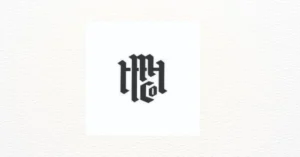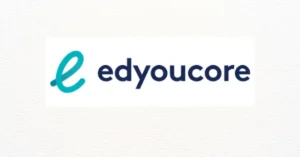In the sprawling digital landscape of the 21st century, few terms encapsulate the convergence of influence, intimacy, and identity quite like “famousparenting” and “momlife.” No longer confined to the private sphere, motherhood today is a visible, performative, and at times monetizable act. As cultural narratives shift and digital platforms expand, modern mothers find themselves not only raising children but also curating lifestyles that resonate with vast online audiences.
This piece unpacks the dynamic between famousparenting and momlife, illuminating the intricate roles, pressures, and triumphs that define motherhood today. From social media’s role in amplifying parenting voices to the emotional labor of performing momlife in the public eye, we delve into the evolving nature of what it means to mother in an era shaped by visibility and validation.
The Digital Age of Parenting
Parenting in the digital era is a tapestry woven with advice forums, TikTok tips, Pinterest inspiration boards, and viral Instagram reels. The phrase “famousparenting” speaks not only to celebrity parents but also to influencers, bloggers, and everyday moms who’ve cultivated online communities around their family life. For many, the smartphone becomes both a documentation tool and a gateway to global dialogue.
Platforms like Instagram and YouTube are brimming with mothers who transform daily routines into content: school lunches become aesthetic flat-lays, toddler tantrums are teachable moments, and bedtime stories get the ASMR treatment. This dual existence—nurturing at home while narrating online—has redefined the traditional perception of motherhood.
The Rise of the Parenting Influencer
The modern parenting influencer is more than a content creator. She is an entrepreneur, mental health advocate, educational advisor, and occasionally, a comic relief provider. Her value lies in her authenticity—or the perception of it. Followers flock to see real moments: the cluttered kitchens, the unfiltered postpartum updates, the gentle parenting wins and fails.
This transparency, however, can also become a double-edged sword. With millions of eyes watching, even genuine struggles can morph into performance. The pressure to stay relevant and relatable compels many moms to package their lived experiences into digestible narratives, often balancing raw honesty with aesthetic appeal.
The Complexity of MomLife
“Momlife” has become more than a hashtag. It is a cultural shorthand for the intersection of exhaustion, love, frustration, and fulfillment that defines motherhood. For some, it includes flexible working schedules, hybrid schooling decisions, and co-parenting challenges. For others, it’s managing bedtime routines after late-night side hustles.
Modern momlife reflects the complexity of contemporary family structures and socioeconomic realities. Single mothers, queer families, stay-at-home dads, and blended households have broadened the definition of what parenting looks like. And as the makeup of families shifts, so does the lexicon of motherhood.
Mental Load and Emotional Labor
A recurring theme in momlife discourse is the “mental load”—the invisible, often unacknowledged cognitive labor required to manage household tasks, family schedules, emotional wellbeing, and child development. This concept, while not new, has gained more traction as mothers increasingly voice their experiences online.
The emotional labor of caregiving is immense. Beyond physical tasks, mothers are often the emotional anchors of their families. The digital age has added another layer: the labor of creating, maintaining, and engaging with online communities, sometimes at the expense of their own emotional needs.
The Monetization of Motherhood
Famousparenting doesn’t just document family life; in many cases, it becomes a revenue stream. Brand collaborations, product launches, and affiliate marketing have turned digital motherhood into a business model. Influencer moms sell everything from organic baby snacks to self-care journals, often integrating these promotions seamlessly into their daily content.
While this can provide financial freedom and creative autonomy, it also raises ethical questions. Where is the line between sharing and exploiting? At what point does the child’s privacy get compromised? Can we trust the advice if it’s sponsored? These questions underscore the need for responsible content creation and consumption.
Regulation and Responsibility
As children become fixtures in online narratives, countries like France and Australia have started drafting laws to protect child influencers. Meanwhile, digital platforms are increasingly being scrutinized for how they handle family-centered content.
Mothers, too, are pushing back against exploitative trends. Movements like #LetThemBeLittle and #NoKidContent advocate for limiting children’s digital exposure. The next phase of famousparenting may involve more blurred faces, anonymous storytelling, or full digital withdrawal.

Representation and Inclusion in FamousParenting
Historically, mainstream depictions of motherhood have skewed white, middle-class, and heteronormative. Today’s famousparenting space, however, is becoming more inclusive. Black, Indigenous, and other moms of color are reclaiming their narratives. LGBTQ+ families are documenting their journeys with openness and pride. Neurodivergent parenting experiences are gaining recognition.
Representation matters. Seeing a mom juggling three jobs, navigating systemic racism, or raising a child with disabilities can validate the experiences of others in similar situations. It can also educate those outside that experience, fostering empathy and community.
Balancing Authenticity and Aspiration
One of the greatest tensions in famousparenting and momlife content is the push-pull between authenticity and aspiration. Audiences crave realness: the stained shirts, messy rooms, and tired eyes. Yet aspirational content—beautifully edited videos, organized homes, picture-perfect holidays—still garners the most engagement.
Mothers often feel caught between being too perfect and too vulnerable. The backlash can be swift in either direction. The challenge is to find a balance that feels true, sustainable, and ethical.
Community and Connection
Despite the pitfalls, one of the most profound gifts of famousparenting is community. For many mothers, online spaces are lifelines. They offer advice, solidarity, and humor during 3 a.m. feedings. They make space for vulnerability, encouragement, and shared growth.
Private Facebook groups, subreddits, WhatsApp mom pods, and Discord parenting servers allow for intimate, focused exchanges beyond the public eye. These digital village models mimic what traditional communities once offered, albeit with gifs and emojis.
Navigating MomLife in a Post-Pandemic World
The COVID-19 pandemic redefined the contours of momlife. Suddenly, mothers became full-time teachers, tech support, and crisis managers. Many left the workforce. Others pivoted to remote work while homeschooling and caregiving.
This seismic shift forced a global reckoning with the value of unpaid labor and the resilience of mothers. It also accelerated conversations around childcare infrastructure, mental health resources, and work-life balance. As the world rebuilds, mothers are demanding systemic change, not just hashtags.
The Future of FamousParenting
What lies ahead for famousparenting and momlife? The trends point to more mindful content, digital detoxes, and hybrid parenting models that blend online presence with offline grounding. Audio-based platforms and long-form storytelling may replace fleeting reels. AI-driven personalization could reshape parenting advice, while ethical tech will influence how children are featured online.
Crucially, the future of parenting content lies in intentionality. Whether a mom has ten followers or ten million, the power of her narrative lies not in the algorithm but in the authenticity and agency she brings to it.
Final Thoughts: Redefining the Narrative
Famousparenting and momlife are not monoliths. They are evolving mosaics made up of countless lived experiences, each shaped by culture, circumstance, and choice. What binds them is a collective desire: to nurture, to connect, and to be seen.
As we continue to document and define motherhood in the digital age, the most powerful stories will be those that honor the full spectrum of what it means to mother—the mess, the magic, and everything in between.
The future of motherhood is not just something we watch unfold online. It’s something we write, shape, and share—together.
For more information, click here.









